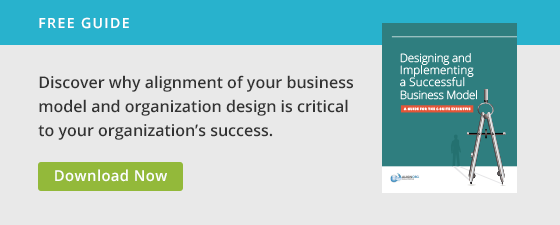Human resource (HR) leaders are uniquely positioned within their organizations to play a significant role in change management. Traditionally, they have been workplace policy enforcers, employee liaisons, and corporate communicators. However, the evolving corporate climate–and the influence of technology and workplace analytics–have reshaped the HR function. It warrants a different kind of HR leader–the change management partner.
The change management partner must look beyond statistics and organization charts to facilitate transformation and meet business needs. While traditional HR activities can offer valuable support to boost the bottom line and enhance competitiveness–on its own–support activities don’t change the behaviors that will drive different business performance. A mind shift and commitment to change are required. Organizations need to be attuned to employees’ capabilities and know how to channel their talents to affect positive change. But this means someone has to be in a position to ask the right questions of their leaders so that organization choices can be adjusted to drive optimal behaviors.
Affecting Transformation as a Change Agent
Today’s fast-paced business environment demands a different kind of HR executives: ones who can facilitate organization change.
In this role, HR leaders can support their business leaders in less traditional ways. They can ask leaders the important, but tough questions that will help them better assess their organizations’ people and capabilities. In doing so, HR can influence and help restructure how their organizations:
- attract and keep employees,
- develop a passionate, engaged culture,
- foster internal and external relationships critical to success, and ultimately
- compete more effectively in the marketplace.
It’s not enough to ask the tough questions, though. HR executives must encourage leaders to find the best answers to the right questions. Finding the right answers comes as leaders reflect on their choices and how those choices enable or disable organizational performance. HR leaders help business leaders see the implications of their choices and consider how those choices may need to change.
Providing a Birds-Eye View of the Organization
To have a tangible impact, effective change partners must look beyond traditional bottom-line metrics. They must help their leaders recognize the intrinsic values and interconnected relationships that make organizations work that don’t always show up in the numbers.
These values might be found in the organization’s culture: does it foster satisfaction and loyalty? And how does it attract top talent? Or you might need to understand how your products and services influence your customers’ lives. Even your organization’s philanthropy might generate goodwill that is difficult to quantify in a spreadsheet. HR is in a distinct position to recognize factors that have intangible strategic value and help leaders weigh their relevance to the organization’s differentiation and success.
Recognizing Your Influence to Affect Change
Most HR leaders today have a traditional relationship with their leadership. One that is more deferential than bilateral. Just as HR leaders must reshape their relationship with leaders, they also have to recast their role in the organization and become more strategic in their thinking and actions. They need to position themselves as the trusted advisor and ally of their leadership. In this capacity, HR as a change management partner can play a pivotal role in building consensus and turning their leaders’ vision into action.
Overcoming Obstacles
Before HR leaders can start solving problems at the organizational level, they have to demonstrate why change is important and how it can improve performance. Providing compelling, empirical evidence is helpful. But it’s just as important to understand why leaders resist change and how to address those obstacles.
Below are a few typical scenarios that HR leaders face when stepping into the change management role. For each, I offer a response that will help overcome that challenge and facilitate change:
Challenge #1: We have enough data. We don’t need to invest in more data.
Response: Knowledge is power. Effective change can’t take place without understanding the factors that drive your organization’s success. You’ll often find surprising correlations between employee data and other areas such as productivity and finance. It’s not unlike global security—when all countries share intelligence, they are more effective in combatting terrorism. Help leaders know when sound answers can be found in the data and when a judgment call needs to be made.
Challenge #2: Our department’s work/priorities are proprietary. There’s no need for us to share it with you.
Solution: It’s natural for departments to be protective about their work, priorities and data, especially if they don’t know how it will be used (or misused). If HR can connect the dots and show how the data is essential to the overall business strategy, disparate groups can come together to find insights that will help the business grow and change.. But before you insert yourself into the fray, make sure that you have sponsorship for your efforts to connect dots across the organization.
Challenge #3: As HR, it’s your job to execute and relay our decisions to employees. Nothing more.
Solution: HR needs to convince leadership that they bring a powerful perspective to the table. In your role, you have visibility into corners of the organization that leadership can’t see. And because you interact with employees at all levels, you are uniquely positioned to:
- implement critical and beneficial change practices,
- validate behavioral changes, and
- correct those behaviors that haven’t changed.
Persuasive Partners in Transformative Change
HR leaders can play important roles in transformative change. But before they can do that, they may need to convince their leaders—and, above all, themselves—that they have the skills, access to data, and unique perspective to help organizations adapt to a fast-changing marketplace. HR can be a powerful ally to leadership, giving them a powerful tool to compete and grow.






